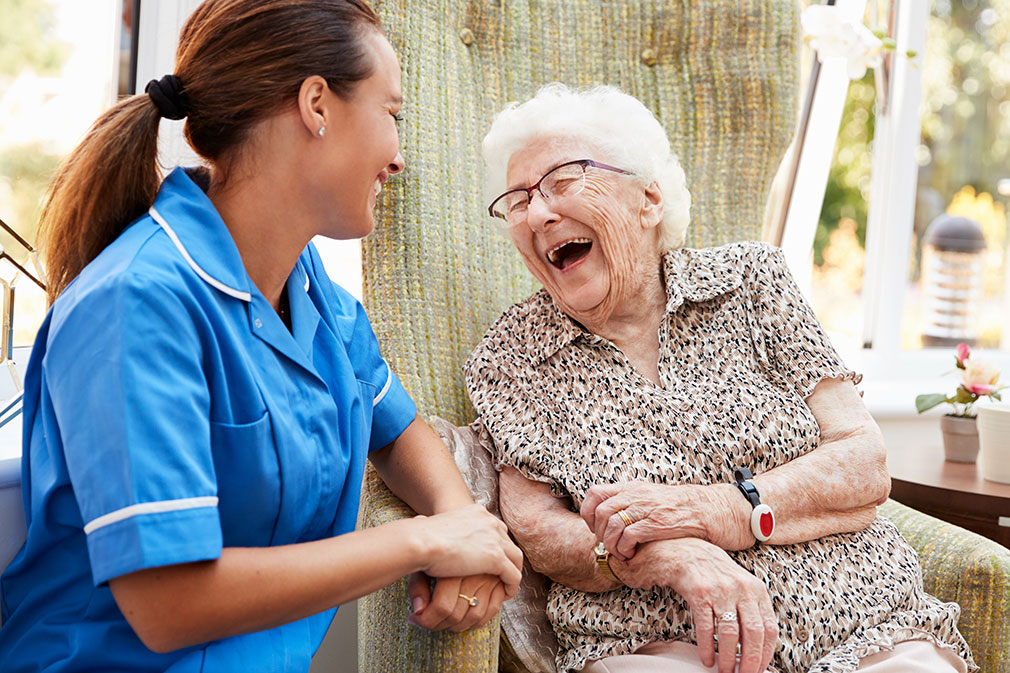Helpful Tips from Help at Home Caregivers

Did you know? Being alone may be enjoyable in some circumstances but being lonely has shown it can be bad for your health and well-being. In fact, research suggests it people who are lonely are more likely to have health problems, like high blood pressure or even dementia.
Unfortunately, people who don’t have family near them or those who can’t easily leave the house to visit with friends because of their health problems are at risk of social isolation.
Often, caregivers can be part of the solution! That’s one of the reasons caregiving is such a meaningful and rewarding career.
Here are some helpful tips for caregivers from other caregivers
- Don’t be shy! Talk to your client! Ask them if they would enjoy a card game, or if they want to look at some old photos. Ask them questions about their life and listen to their stories.
- Be on the look out for social interactions during outings. If you are taking your client outside for a walk, head toward the house where someone is working in the yard. Even briefly stopping to compliment a neighbor’s yard may be exciting for someone who is alone a lot.
- Help a client use technology to connect. For example, could you help them make a phone call or a video call? Older people often don’t feel comfortable with the newer technologies that their family members use most often.
- Give your clients things to look forward to. Talk about when you’ll be back and if possible discuss plans for that day. Instead of just saying “see you next time,” be specific. “I’ll be back on Tuesday and we can play Uno again.”
- Plan special outings. In some cases, caregivers have been able to take a client to a nearby outdoor festival, a daytrip to their nearby hometown, or the beach.
- Think about things you share with your client. Caregivers are never expected to spend money on their clients, but there may be some things you can do to brighten their day! If you can pick a daisy from your yard or show them a pretty photo you saw on your phone – they will know that someone is thinking of them! Especially if you tie it back to something they have told you. “I know you said you used to have a cocker spaniel. Did it look like this dog I saw on the internet?”
Conversation starters
Some people are easier to talk to than others. But having a handy array of questions in mind can help you get the conversation started.
- Ask about photographs or other display items in the house. (Is that your grandson in the photo over the TV? Where does he live? How old is he now? That’s such a beautiful quilt on the sofa. Did someone you know make that?)
- Ask them about their own history. (How long have you lived in this house? Have you lived in this city your whole life? What brought you here?)
- Ask them if they’ve ever had pets. If so, let them tell you all about them!
- Ask about favorite music. If you can play some of their favorite music for them, they will be delighted!
- Ask them about their teenage years. They may enjoy reliving memories about the clothes they wore and their old school friends.
Caregivers can be like friends or family
Caregivers can’t replace friends and family, but they can become like friends or family and help ease loneliness, providing social activity, connection and even a bond of trust. Caregivers say this is one of the most satisfying parts of their work – feeling like they have been there for someone in need of a friend.
In-home personal caregivers, like many of those at Help at Home, do not need medical skills, but are trained professionals with a goal to provide needed assistance in activities of daily living, like grocery shopping, making home-cooked meals or helping with laundry or cleaning. In addition, they can also take clients on outings, help them run errands or just for ice cream on a hot summer day.
Sometimes just being there for someone is enough, and is more important to the client than a caregiver will ever know!
